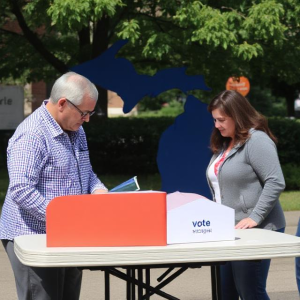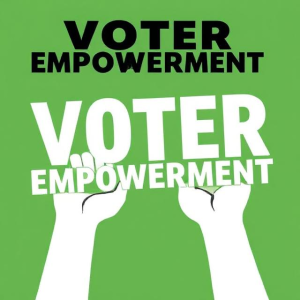Michigan Voter Empowerment Hub a centralized platform for voter education
Michigan Voter Empowerment Hub Michigan will be a powerful centralized platform designed to promote voter education, engagement and participation in the state of Michigan. The platform can serve various important tasks to reach the necessary information in a timely manner for voters. Here are some of the major features that may join such hubs:
1. Voter registration information
- Online voter registration: a simple interface for voters to register or verify their registration status.
- Time limit of registration: Clear time limit for voter registration and time limit for absent ballot papers.
- Eligibility Requirements: Information about who is eligible to vote, including details on residency, age, and other major criteria.
2. Voter education resources
- Candidate information: Detailed profiles of local, state, and national candidates running for office, as well as their platforms, previous experiences, and major positions.
- Matters Remedy: Clear, understandable explanation of referendum, proposals, and other ballot papers that voters will be asked to consider.
- Voting process: Easy understanding guides on how to vote, including early voting, absent voting and polling place rules.
3. Polling place explorer
- Find your polling place: A device where voters can input their address and find their nominated polling place for election day.
- Poll hour: Information on the election in Michigan, including any changes based on election or type of county.
- Election calendar
- Upcoming Elections: A full calendar with dates for the upcoming local, state and national elections.
- The time limit for absent voting: clear time frame for applying and submitting absent ballot papers.
- Voting accessibility tool
- Language support: multilingual resources to ensure that non-English speaking people can access important information.
- Disability access: Information about accessible polling options for persons with disabilities, such as assistance with voting at polling places or using accessible voting machines.
- Get involved
- Volunteer opportunities: a list of ways to include voters may include, such as volunteering for campaigns, helping voter registration drives, or serving as voting workers.
- Advocacy equipment: Information about contacting local representatives, engaging in public forums, and participating in political processes beyond voting.
- Real-time update

- Election Results: Live results on election day, with a detailed breakdown by county, city and district.
- Voter issues: real-time updates on issues affecting voters, such as long waiting times, changes in polling places, or other disruptions.
- Voter protection resources
- Know your rights: This section educates voters about their rights in elections, including protection against voter threats and discrimination.
- Report issues: One way to report voters’ problems or issues for voters, they encounter during voting participation with local organizations.
9. Partnerships with Local Organizations
- Partnership with non-profit organizations, universities and other organizations focuses on increasing voter participation and awareness.
- Community Outreach Program: Support for grassroots organizations working to improve voter education and gather in weak communities.
- Data and analytics
- Voter engagement tracking: Voter participation and the ability to track engagement over time can help identify areas that require more outreach or attention.
- Voter response: collecting feedback from users to continuously improve the platform and its resources.
